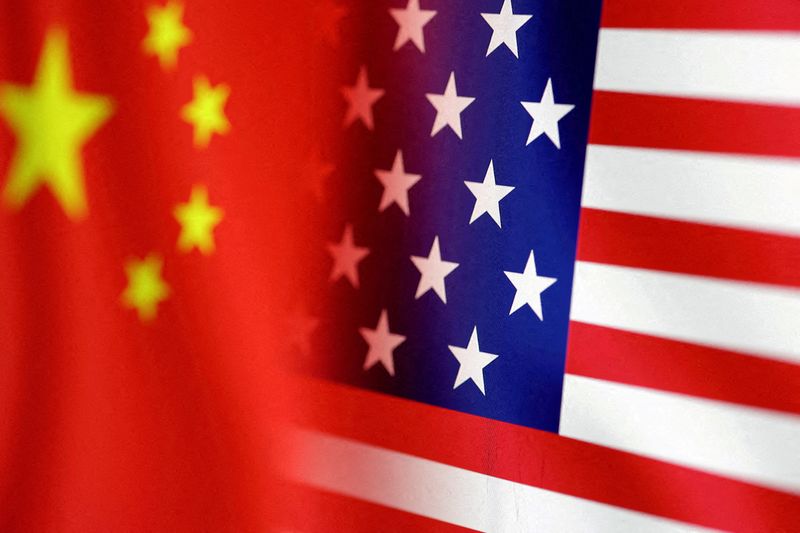Investing.com’s stocks of the week
By Michael Martina
WASHINGTON (Reuters) - Republican lawmakers on Tuesday urged the U.S. State Department not to renew a decades-old U.S-China agreement on scientific cooperation, arguing that Beijing would seek to use it to help its military.
The deal, signed when Beijing and Washington established diplomatic ties in 1979 and renewed about every five years since, has resulted in cooperation in areas from atmospheric and agricultural science to basic research in physics and chemistry.
But concerns about China's growing military prowess and theft of U.S. scientific and commercial achievements have prompted questions about whether the Science and Technology Agreement (STA) set to expire on Aug. 27 should continue.
In a letter sent to Secretary of State Antony Blinken, the chair of the U.S. House of Representative's select committee on China Mike Gallagher and nine other Republican representatives said the deal should be scrapped.
The letter cited concerns about joint work between the U.S. and China's Meteorological Administration on "instrumented balloons", as well as more than a dozen U.S. Department of Agriculture projects with Chinese entities that it said include technologies with "clear dual-use applications," including techniques to analyze satellite and drone imagery for irrigation management.
"The PRC (People's Republic of China) uses academic researchers, industrial espionage, forced technology transfers, and other tactics to gain an edge in critical technologies, which in turn fuels the People's Liberation Army modernization," the lawmakers wrote.
"The United States must stop fueling its own destruction. Letting the STA expire is a good first step," they said.
China has sought to accelerate efforts to achieve self-reliance in agricultural technology, including in seed development. U.S. authorities have stepped up efforts to counter what they say is industrial espionage by Chinese individuals in the sector.
China's officials hope to extend the deal, and have said publicly they approached the U.S. last year to discuss renewal, but that Washington has been conducting a review of the agreement.
The State Department earlier this month declined to comment on "internal deliberations on negotiations."
Proponents of renewing the deal argue that without it, the U.S. would lose valuable insight into China's technical advances. Nonetheless, many analysts say the agreement must be fundamentally reworked to safeguard U.S. innovation in a time of heightened strategic competition with China.
